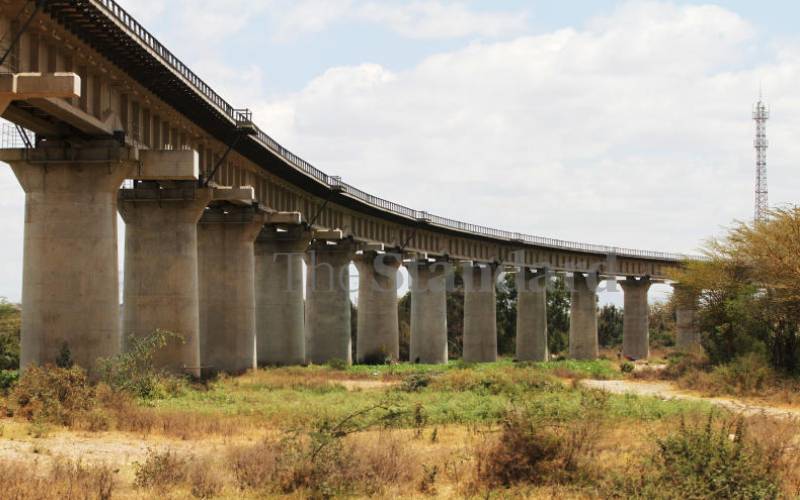×
The Standard e-Paper
Kenya’s Boldest Voice

A section of the Standard Gauge Railway (SGR) near Kitengela area on Mombasa Road on August 27, 2020. [Elvis Ogina,Standard]
A bid to block the standard gauge railway from passing through Nairobi National Park has failed.